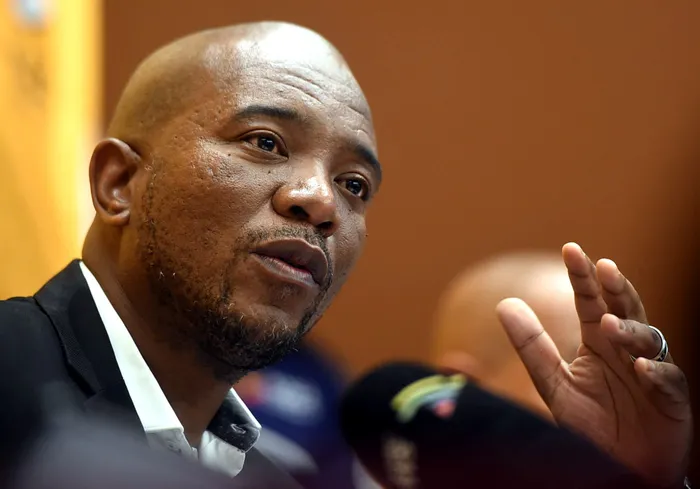Education activist opposes proposal to raise pass rate amidst inequality concerns

The DA and education activist, Hendrick Makaneta, oppose Build One South Africa’s proposal to increase the pass rate from 30% to 50%. Picture: Itumeleng English / Independent Newspapers
Education activist, Hendrick Makaneta, has opposed Build One South Africa’s (Bosa) proposal to increase the current pass rate to 50%, stating inequality still persists in the education system.
Bosa president Mmusi Maimane has long clamoured for the Basic Education Department to scrap the 30% pass rate, maintaining that there should be reforms in the country’s education system.
Maimane spoke to the SABC over the weekend, where he expressed that the 30% pass rate is a facade by the department to hide the poor pass rate of learners in schools.
He said the current pass rate confirmed that the country’s education administration showed a “lack of ambition”, making learners vulnerable to unemployment and unemployability after school completion.
“We use the 30% to say that more and more learners are passing, so that we can self-congratulate that 81% of learners passed their matric. However, when you look at the underlying figures, few of them are actually passing at 50%,” said Maimane.
Makaneta told The Star that the proposal is progressive, but the education system is inflated with internal challenges, which need to be addressed.
“Many schools, especially in rural areas, struggle to provide basic resources like textbooks, electricity, and proper sanitation, which are fundamental to a conducive learning environment. Without addressing these issues first, it may be a bit difficult to achieve this objective,” said Makaneta.
He stated that increasing the pass rate would burden learners and teachers, especially quintile 1 to 3 schools, which exacerbates existing inequality.
“Students in these schools often face overcrowded classrooms, limited access to experienced teachers, and minimal extracurricular support.
“Instead of benefiting, they may face increased challenges if the pass rate is raised without concurrent investments in educational resources and support systems,” said Makaneta.
According to media reports, Basic Education Minister Siviwe Gwarube confirmed that there were plans to raise the pass rate to 50%.
Despite Gwarube’s stance, Maimane suggested that the pass rate be increased to a minimum of 50% in the next five years.
He said one’s economic status determines a person’s extent to accessing quality education.
“Education has been in crisis for far too long. We have lived in a divided education system, where when you are poor, you get a very poor education; and if you have money, you are able to get a decent education,” said Maimane.
He cited children from the IEB learning system, who are considered elitists, hold a higher pass rate compared to public education.
“The majority of their learners pass over 50% and ultimately, wealthier kids are succeeding in other indicators such as the economy,” said Maimane.
The DA’s spokesperson on basic education, Dr Delmaine Christians, told the paper the policy would exclude academically challenged learners, particularly those in rural and under-resourced schools.
“Many of these students do not have access to specialised educators or tailored educational support, which are crucial for their success.
“Implementing a higher pass requirement standard should come with increased resources aimed at equitable access to quality education, including improved support for learners who face academic challenges, ensuring they are not left behind,” said Christians.
Maimane argued there would be multiple exit learning institutions that would still subject learners to a 50% pass rate.
“Everyone can pass at 50% in multiple areas, rather than dropping the pass rate which cripples the system in its entirety.”
Although Bosa’s education policy is attainable, there needs to be systemic reforms in education.
“While raising the pass requirement may seem beneficial, it requires a balanced approach with a commitment to addressing the deeper systemic issues.
“The DA supports initiatives that raise standards, but will continue to advocate for the resources and reforms needed to make such policies both realistic and fair for all learners across South Africa,” said Christians.
The Star
hope.mafu@inl.co.za